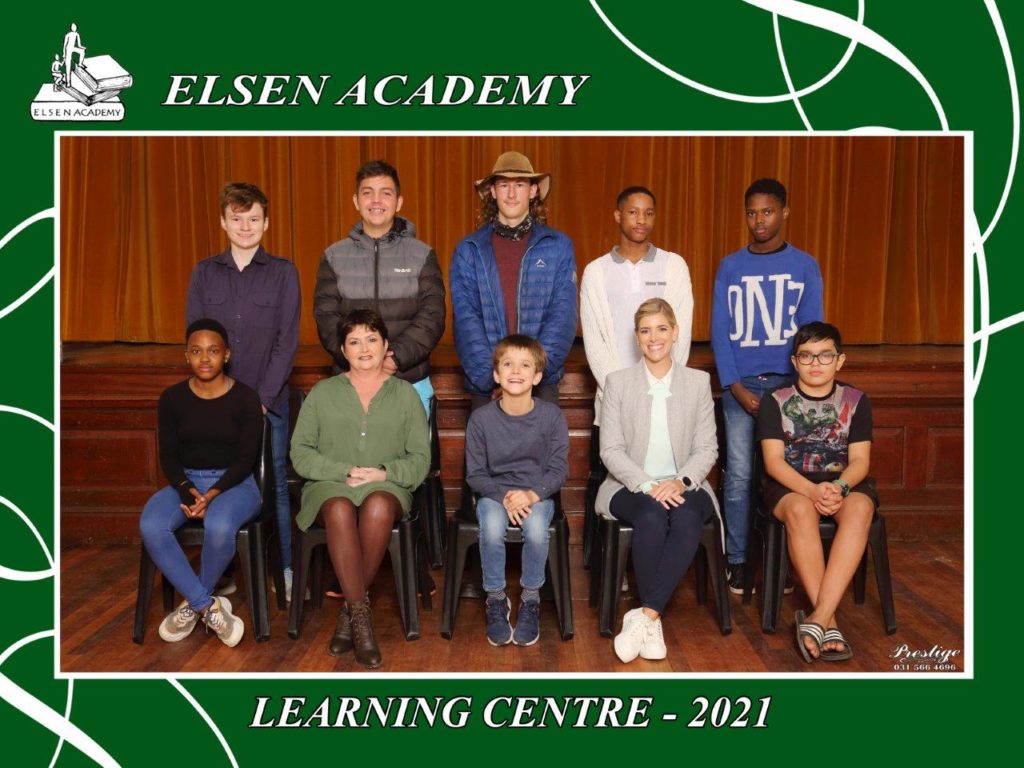Learning Centre Life at Elsen
Elsen has collaborated with Think Digital College registered with the South African Comprehensive Assessment Institute (SACAI) Elsen Academy, Learning Centre is an educational support centre, run independently. Children at educational support centres have the opportunity to work in groups and interact socially with other children. The learning center is suited to children that are students who are self-driven and prefer to set their own pace for learning. The learning centre has shorter school hours, as they finish at 1pm every day and at 12.30pm on a Friday.
Comparison between Elsen Learning Centre and traditional learning
Learning Centre
- School hours – 7.30am until 12.30pm
- Student-driven learning is encouraged with limited input from the teacher/tutor to encourage independence and accountability.
- Parents take a backseat and allow the student to take full responsibility for their studies by offering support and praise when praise is due. Reward effort and not results.
- Every subject has an online tutor but students work independently. The teacher in the centre facilitates and monitors work but does not teach.
- No textbooks. Students need a laptop or tablet with wifi. Lessons are online making use of videos and slides. Activities are provided to assess understanding of the work.
- No school uniform, No homework (unless catching up or preparation for exams is needed), No after- school sport.
- All subjects are online, students complete their work according to their own schedule. Activities can be done on Google docs or in their exercise book.
Activities done online are marked immediately so there is instant feedback. - Work is always available 24/7, provided there is internet access.
- Students can contact tutors until 3.30pm every day.
- Assessments are done every term on the computer. No need for concessions, except if the student needs a reader. Instant feedback after the test. Tests can be reviewed immediately.
Gr10 – 12 tests are written and submitted by invigilator. - Additional activities can be given to supplement work.
- Questions in assessments include multiple choice, matching columns, filling in missing words. Statements are factual requiring only one correct answer. Assessments are set by TDC or SACAI for Grades 10, 11 and 12.
- Limited social interaction as the students work independently and on computer.
- The students do not take part in any school events.
- Free wifi is provided but if students abuse this, consequences will be as stated in the internet policy.
Parents are obliged to monitor their child’s online usage at home.
Traditional Classes
- School hours – 7.40am until 2.15pm.
- The student follows a set timetable provided by the teacher. Lessons are broken up into subjects and a bell rings to indicate when the lesson ends and when the next lesson starts.
- Parents are expected to get involved and the amount of involvement is dependent on the parent and the child.
- Every subject has a teacher who directs the lesson and provides all the work that needs to be completed.
- Textbooks and learner books are used. The teacher highlights content and explains the work. Students complete activities to assess understanding of the content.
- School uniform, Homework daily
- Tutoring and/or sport after school
- Fixed timetable with work that is provided by the teacher. Students complete work in their exercise books. Teacher takes books in and marks work.
- Feedback is provided when books are returned.
- Work is only available if the teacher is present.
- Teachers might not always be available after hours.
- Assessments are written, marked by the teachers and results given.
- Work is content heavy and often teachers struggle to complete the syllabus in time.
- All tests and assessments are set by the teachers and questions include a variety of types. Section A questions are usually one word answers, Section B are usually whole sentences or paragraphs that are written and Section C are much longer essay-type questions or where students have to provide their own opinions and insight.
- Classroom discussions and teacher led lessons provide plenty of social interaction. Break times occur at a set time and classes interact together.
- Normal school activities such as assemblies, sports days, talent show, etc. occur.
- Internet may or may not be provided by the school during certain lessons.

